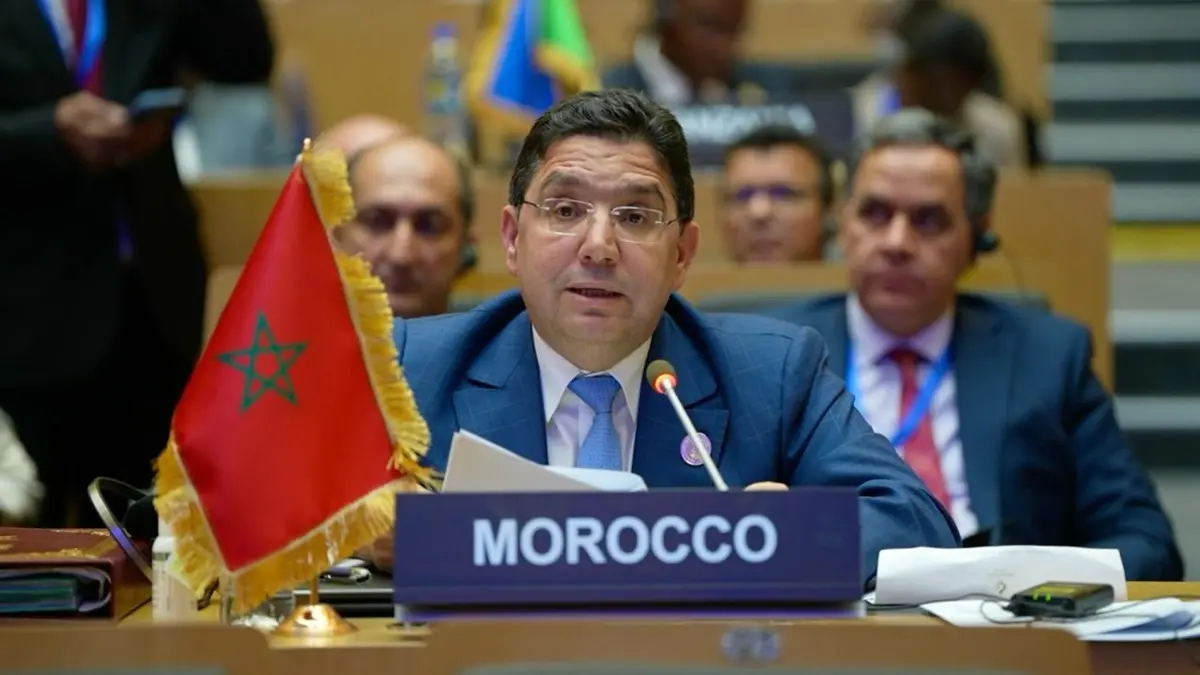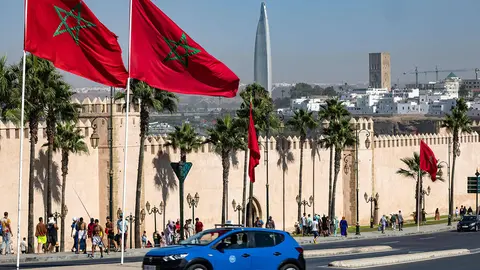Morocco reaffirms its commitment to achieving development goals in Africa

Nasser Bourita, Morocco's head of diplomacy, has reaffirmed that his country's commitment to achieving development and security objectives in Africa stems from the strategic vision of King Mohammed VI of Morocco, within the framework of a global and multidimensional approach.
Presence at the African Union Summit
The Moroccan foreign minister made the remarks while representing the king at the 37th African Union (AU) summit held last weekend in Addis Ababa.
In a speech to the AU in January 2017, King Mohammed VI had stressed the importance of favoring the emergence of a new Africa, capable of transforming its challenges into a real potential for development and stability.
Based on this conviction, Morocco has constantly sought to make its contribution to the implementation of the programs and activities of Agenda 2063, as well as to the discussions on the evaluation of the first ten-year plan and the strategic orientation of the development of the second ten-year plan of Agenda 2063.
Bourita noted that for Morocco "it is essential to develop a resource mobilization strategy," adding that "Morocco reiterates its proposal to create a Development Fund similar to the Peace Fund, in order to provide the necessary financial support for the implementation of the second ten-year plan."
The Marrakech Declaration, emanating from the high-level African ministerial meeting on accelerating the financing of Africa's emergency, organized on the sidelines of the World Bank-IMF meeting last October in Morocco, decided to set up a working group to enable African countries to exchange best practices in development financing, the minister said.
"The realization of the vision of Africa that we desire can only be achieved through a strong involvement of the Regional Economic Communities (RECs) in the development process, working within the framework of operational synergies with the AU in general and AUDA-NEPAD in particular," Bourita stated.
In addition to the RECs, Rabat also advocates the reinforcement of continental structures dedicated to young people, who today represent 41% of the African population, the minister declared.
He also stressed the need to "establish regular monitoring mechanisms, in particular through the creation of a dashboard that would allow us to identify delays and obstacles in time."
He said Morocco supported the proposals of Ivorian President Alassane Ouattara, in particular the convening of an extraordinary summit in Abidjan "to deepen the commitment of African leaders and increase ownership, awareness and visibility of the second ten-year plan of Agenda 2063."
At the AU summit, Morocco paid tribute to Ouattara, for his tireless efforts in advocating, engaging and achieving the aspirations. and strategic objectives of the AU Agenda 2063.
In a speech commemorating the 48th anniversary of the Green March, King Mohammed VI announced this month that the Atlantic seaboard is Morocco's gateway to Africa and its window to the world.
As such, the King continued, Morocco's objective is to transform this region into a center of human communication, economic integration, as well as continental and international compatibility.
Throughout his speech, he recalled the civil, political, economic and diplomatic dimensions of his vision of Morocco's position on the world stage, especially its commitment to African prosperity and its growing pan-African leadership.
In his view, the consolidation of Morocco's African identity requires the demonstration of its unwavering commitment to the advancement of peace, stability and prosperity across the continent.
In doing so, the North African country not only reinforces its affiliation to the continent, but also, and more importantly, helps dismantle all accusations and conspiracies aimed at questioning the foundations of Morocco's African identity and pan-African pedigree.









